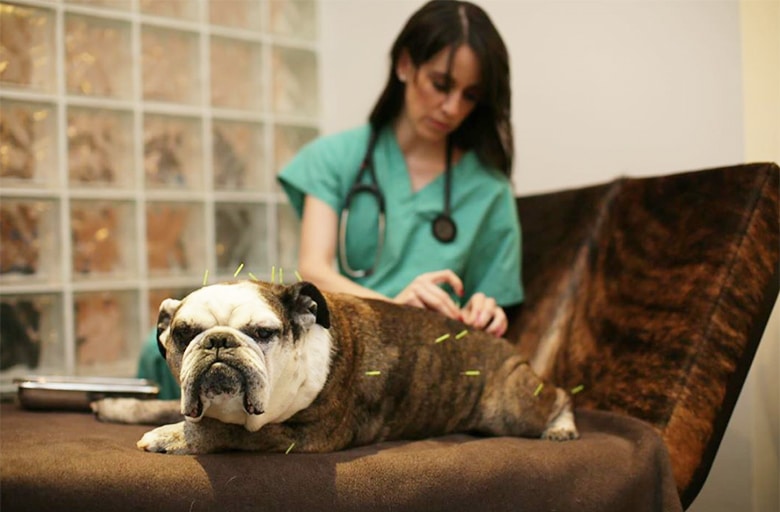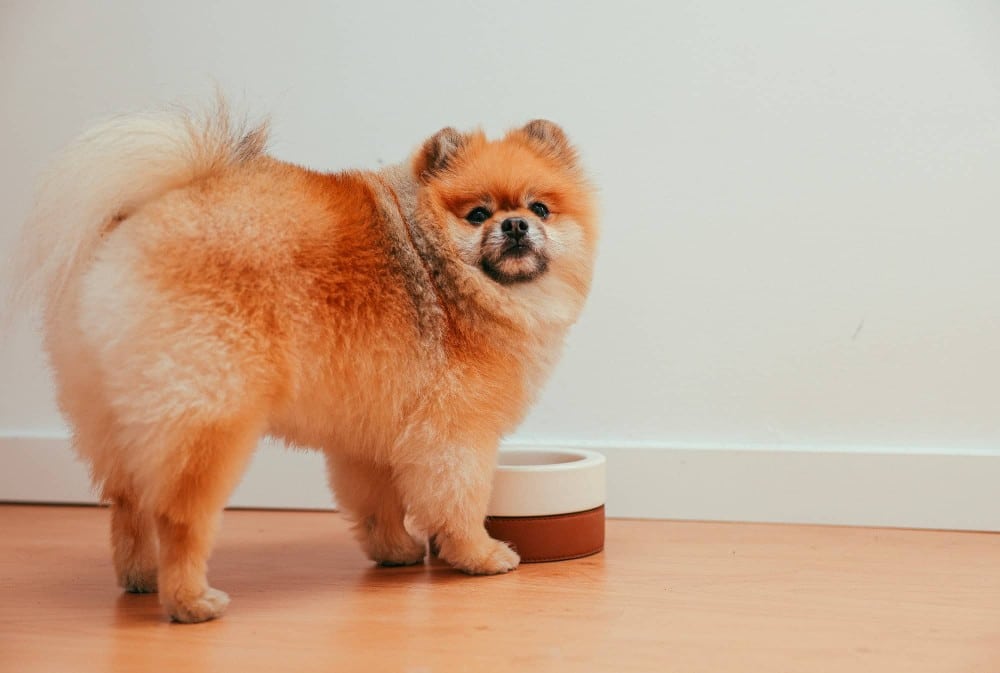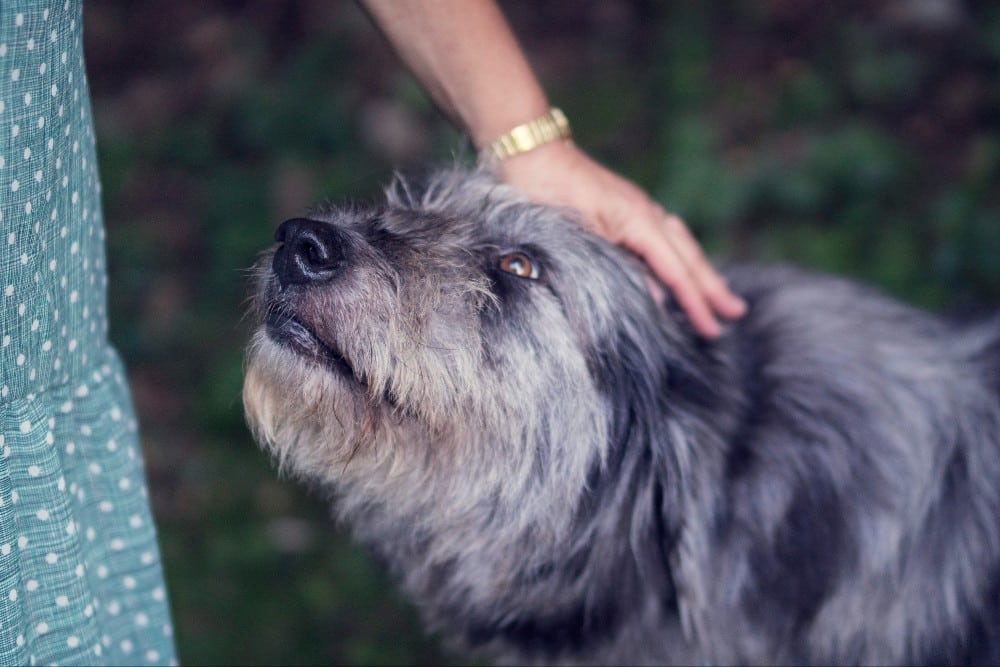When our dogs starts to reach their senior years, it can be difficult to watch them struggle with things they once found easy. Getting up is harder than is used to be, walking down stairs is a slower process and settling in for a night’s sleep takes a bit more time. It can be heartbreaking to watch.
Thankfully, there are options to help our old friend’s days be a bit more comfortable. While there are traditional routes, like prescription medicine, there are also alternative solutions. One gaining traction is acupuncture, “a healing art that has been used in China for thousands of years to treat a variety of medical conditions,” says Dr. Rachel Barrack, a licensed veterinarian, certified veterinary acupuncturist and founder of Animal Acupuncture in New York City.
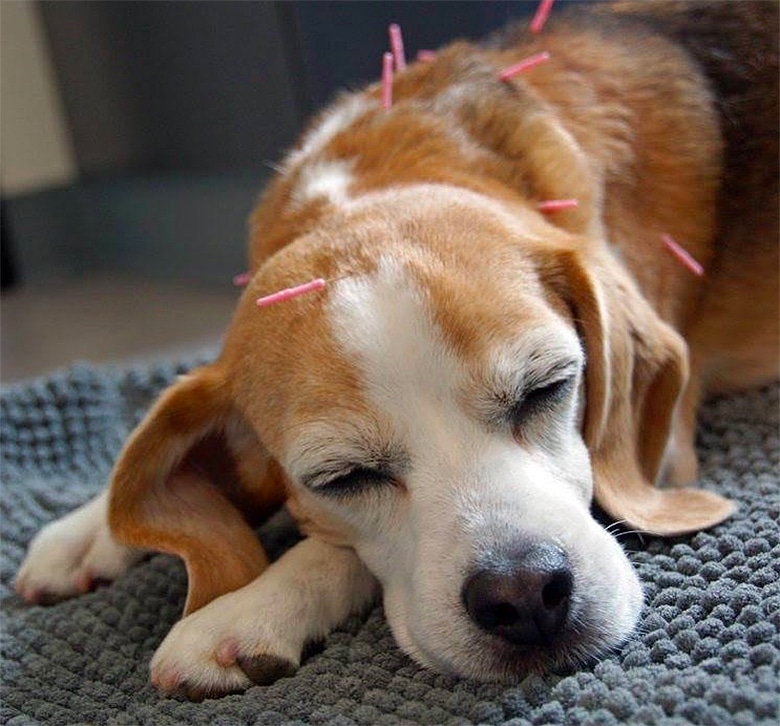
Related: Senior Dog Suffering Pain From Arthritis? Here are 8 Alternatives to Giving Your Dog Drugs.
Ancient Chinese medicine is based on the philosophy that illness is caused by an imbalance of vital energies in the body. Acupuncture focuses on restoring this balance and promoting healing.
“Acupuncture and Western medicine have the same goals: to eliminate disease and support the best quality of life.” explains Dr. Barrack. “However, each approach is suited to specific circumstances. Western medicine is ideal for acute disease diagnostics and surgery. Acupuncture can be very effective in treating chronic conditions that Western medicine can help but not cure.”
While acupuncture can be used to treat an array of different conditions in dogs of all ages, some of the most common applications for senior dogs are related to arthritis, nerve and organ issues, loss of appetite, skin problems, immune-mediated disease, chronic ear infections, post-operative healing, behavioral issues and even cancer.
Related: Want to Make Your Dog More Calm at Home? Consider Feng Shui.
“Acupuncture produces a physiological response. It can provide pain relief, stimulate the immune and nervous systems, increase microcirculation and decrease inflammation,” says Dr. Barrack. “Acupuncture can also help restore balance between organ systems for optimal health and overall wellbeing.”
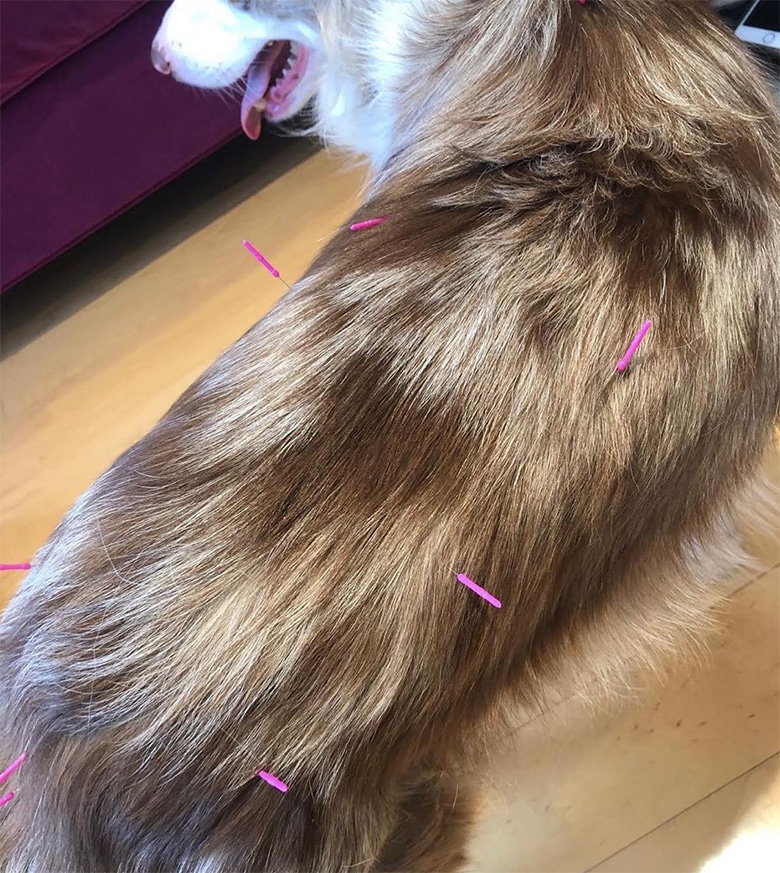
During an acupuncture session, thin, sterile, stainless steel needles are inserted into specific points on the dogs body. “Most acupuncture points are located along 14 major channels, which form a network that carries blood and energy throughout the entire body,” says Dr. Barrack.
| Every dog responds to acupuncture treatments differently. “Some animals show marked improvement immediately following the first treatment, but most animals typically improve after three or more treatments,” says Dr. Barrack. “Chronic or tenacious conditions may take longer.” How often your dog receives acupuncture treatment varies on a case-by-case basis, “Typically, I recommend beginning with three to five treatments, which may be semi-weekly, once a week or bi-weekly. As improvement is shown, treatments can be spaced further apart, or even discontinued,” says Dr. Barrack. “Chinese herbs can be used to enhance the effects of acupuncture and help extend the duration of time between acupuncture treatments.” There are no known detrimental side effects to acupuncture — most of the time the dog does not even notice the needles are there. Yet, the pay off can be huge , with many dog parents noticing big improvements in their best friend. |
For a veterinarian to perform veterinary acupuncture they must undergo extensive coursework to become a certified veterinary acupuncturist. To find a CVA in your area, you can visit Traditional Chinese Veterinary Medicine for a list of practitioners for a list of practitioners.
Related: Indoor Swimming Pool, Acupuncture, Laser Therapy: Water4Dogs Has It All













